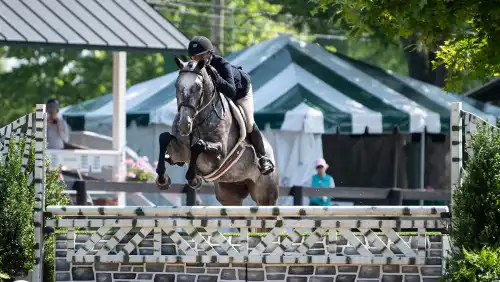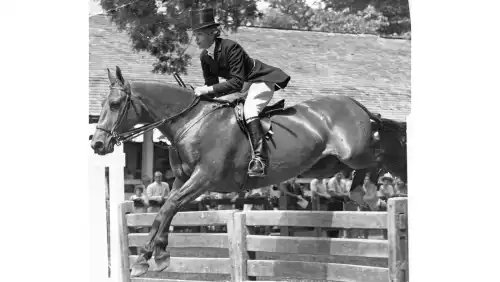I appreciate that Missy Clark took the time to write a response to Sophie Gochman’s article. Fostering a discourse where people feel free to voice their opinions is a very productive way to build a stronger community. However, if we are going to highlight the opinions of established, privileged individuals, we also need to elevate those of people who are in the margins of society. What I write does not represent the opinions of all minorities in the equestrian world, but I am sure that it will ring true for some.
As a queer black woman who has been riding and competing in the hunters since she was 5 years old, my life has been shaped by horses and those in the horse industry. It is tricky to conflate sexual orientation and racial status in their societal acceptability; my experiences with race and sexuality have been different, and it is important to note that when we are talking about queer people in the horse community, these are mostly white queer people. The horse community has built acceptance around queerness, with some of our greatest instructors being gay. However, race is correlated to socioeconomic status more so than sexuality. Therefore, horse riding, an objectively expensive sport, is overwhelmingly white.
The most important element that Missy’s article fails to address is structural societal issues that make it difficult for people of color to enter the horse world. We live in a society where wealth perpetuates wealth and poverty perpetuates poverty. When a person is born into a poor family, there are many factors that make it extremely difficult for them to “pull themselves up by the bootstraps.” I’m sure riders who grew up needing to work to support their families will attest to the difficulty of trying to find time to ride and excel at the level of their peers who are being paid for.

Tyler St. Bernard enjoys a cuddle with Dylan at the 2019 University of Southern California Intercollegiate Horse Shows Association show. Photo Courtesy Of Tyler St. Bernard
If minority riders do not see themselves in the horse world, this perpetuates itself. People will assume that there is not a place for them if they do not see one. My dad wanted me to choose a sport that was already more integrated (and cheaper), but my love of horses kept pulling me in. We used to laugh that riding was for white girls because I was the only non-white girl at my first barn. It was my white grandmother who first encouraged me to join the sport; without her prodding, I may never have sat in a saddle.
My dad and I laughed our way through the summer show circuits, where we would laugh about me being one of the only people of color on a horse. While I am not visibly black (and no stranger to the “But what ARE you?” question), my dad’s side of the family is. Being on the grounds made him nervous, as he felt that he, as my father and the financier of my career, did not fit in. On horseback, I often blended in with the other girls who were intensely tanned from the summer circuit. From under a helmet, my non-whiteness was only visible through my large, ethnic nose.
ADVERTISEMENT
Because I am white-passing, I often hear people say things that they would not feel brave enough to say in front of a person they could easily identify as black. This happened constantly, everywhere from my high school to the showgrounds. For so many years, white people have assumed that the showgrounds are a safe space for them, and them alone, and why wouldn’t they? When they look around, they only see faces that match theirs. Riders are able to assume that everyone has had similar experiences and share common sentiments.
This is in no way to discredit those who are white and had to work their way through riding. My privilege allowed me to show up to lessons and leave once my horse was put away; I didn’t have to work to show or prove myself to anyone for financing. I was fortunate enough that my family was able to afford to pay my way through the sport, which allowed me to compete at the Pennslyvania National and Devon (Pennsylvania) in the junior hunters.
However, I think a lot of equestrians, because they do not see minority equestrians, forget that racial tensions exist outside of the barn. While horses are a bonding agent between all of us, everyone is facing different challenges, and it is important to remember that some equestrians are facing challenges that specifically relate to their race. Some equestrians go home to financial issues, but some go home and hope that they won’t be pulled over for “driving while black.”
A lot of people think the barn should be a neutral place for politics, but the right for black Americans to live safely surpasses politics; it is a human right. It is important that these discussions happen in white spaces like the barn because it is important to address the biases we have in the sport and the difficulties that our fellow riders face. Instead of hiding behind horses, let’s use them to further our discussion and be seen as a sport whose participants are actively working to make their spaces more accessible and friendly to people of color.















